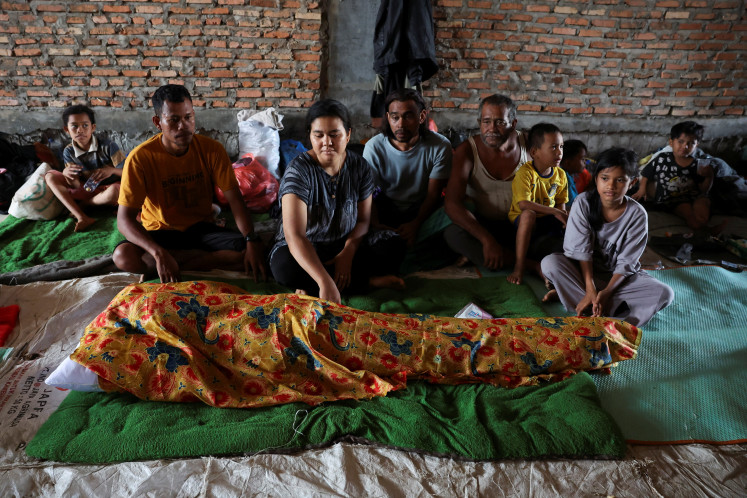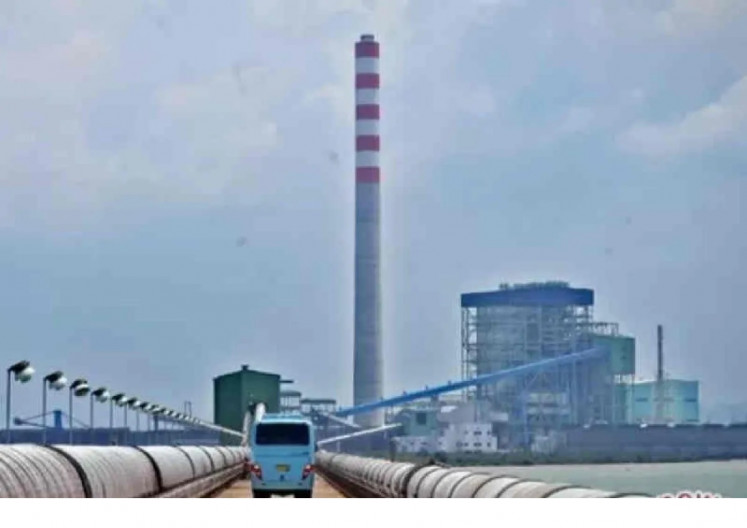Popular Reads
Top Results
Can't find what you're looking for?
View all search resultsPopular Reads
Top Results
Can't find what you're looking for?
View all search resultsFarmers hope new tea certification can up wages
The Indonesian Tea Council has launched a national tea certification program called Lestari, and said it is the world’s first tea certification based on sustainability-related standards
Change text size
Gift Premium Articles
to Anyone
T
he Indonesian Tea Council has launched a national tea certification program called Lestari, and said it is the world’s first tea certification based on sustainability-related standards.
Tea certifications issued by countries like China and India are based solely on the quality of the tea and do not consider aspects of sustainable production like environmental and social factors, the council said.
The first Lestari certificate was presented last week to the cooperative Mekar Jaya, whose members are tea farmers from Mojo Tengah subdistrict in Batang regency, Central Java.
Mekar Jaya chair Suratno expressed pleasure that their tea had passed the certification process, although the certification has yet to have an impact on the price of his tea.
“We have been trying to get the certification since October of last year with the hope that it would increase the selling price. Maybe we just have to wait a few more years,” he told The Jakarta Post after receiving the certification.
Un-dried tea leaves from the 488 Mojo Tengah farmers, who farm a combined area of 182 hectares, are currently priced at Rp 1,250 (14 US cents) per kilogram. All of their yields are sold to PT Pagilaran, which has a factory near Mojo Tengah to process tea.
“Farmers said the price has been the same since 2007, blaming the wages of tea pickers, who are paid Rp 350 per kilogram. The ideal price of the tea would be Rp 2,000 so that pickers could get a wage of Rp 500 per kilogram,” Suratno said.
PT Pagilaran director Rachmad Gunadi said the low yield of young tea leaves was the reason for the low price.
“If it was the same yield as that of farmers in West Java then we could buy it for Rp 1,700 per kilogram,” he said, adding that the yield of Mojo Tengah products was 20 percent, while West Java farmers had yields of 50 percent.
Rachmad said he hoped the sustainability certification would encourage farmers to improve the quality of their tea.
“Improving the quality of the people’s tea plantations through Lestari certification is urgent,” said Rachmad, who is also deputy chair of the Indonesian Tea Council.
Farmer-run tea plantations account for 60 percent of the total area of tea plantations in the country. Yet, in terms of production, they contribute only 25 percent to the nation’s total tea production.
A hectare of tea plantation normally produces between 800 kilograms and one ton of dried tea leaves. Those belonging to large companies can generate up to two tons of dried tea leaves per hectare. This is still far below the productivity of tea plantations in Vietnam, which can produce four tons of dried tea leaves per hectare.
Harry Hendarto of Business Watch Indonesia said whether national certification would influence the price of farmers’ tea would depend on the goodwill of tea businesspeople.
The certification was introduced so farmers would make environmentally and socially friendly products so their tea will garner additional value. Four other cooperatives were reported to have followed suit with the certification, he said.
“This certification uses a local standard, but it is already 75 percent of the international standard,” Harry said.
He said large tea companies should think of a way to improve farmers’ plantations so they would be eligible for certification.
He said if farmers were able to improve their products, the profit margin would not be centered solely around companies but would also be shared proportionally with farmers.
Farmers said the price has been the same since 2007, blaming the wages of tea pickers, who are paid Rp 350 per kilogram.










